Professors Vincent Repain of UPCité and Hyunsoo Yang of the National University of Singapore are collaborating on the “Inducing magnetic chirality without heavy metals” research project. They took the time to explain their work and share their experience of the Paris-NUS strategic partnership.
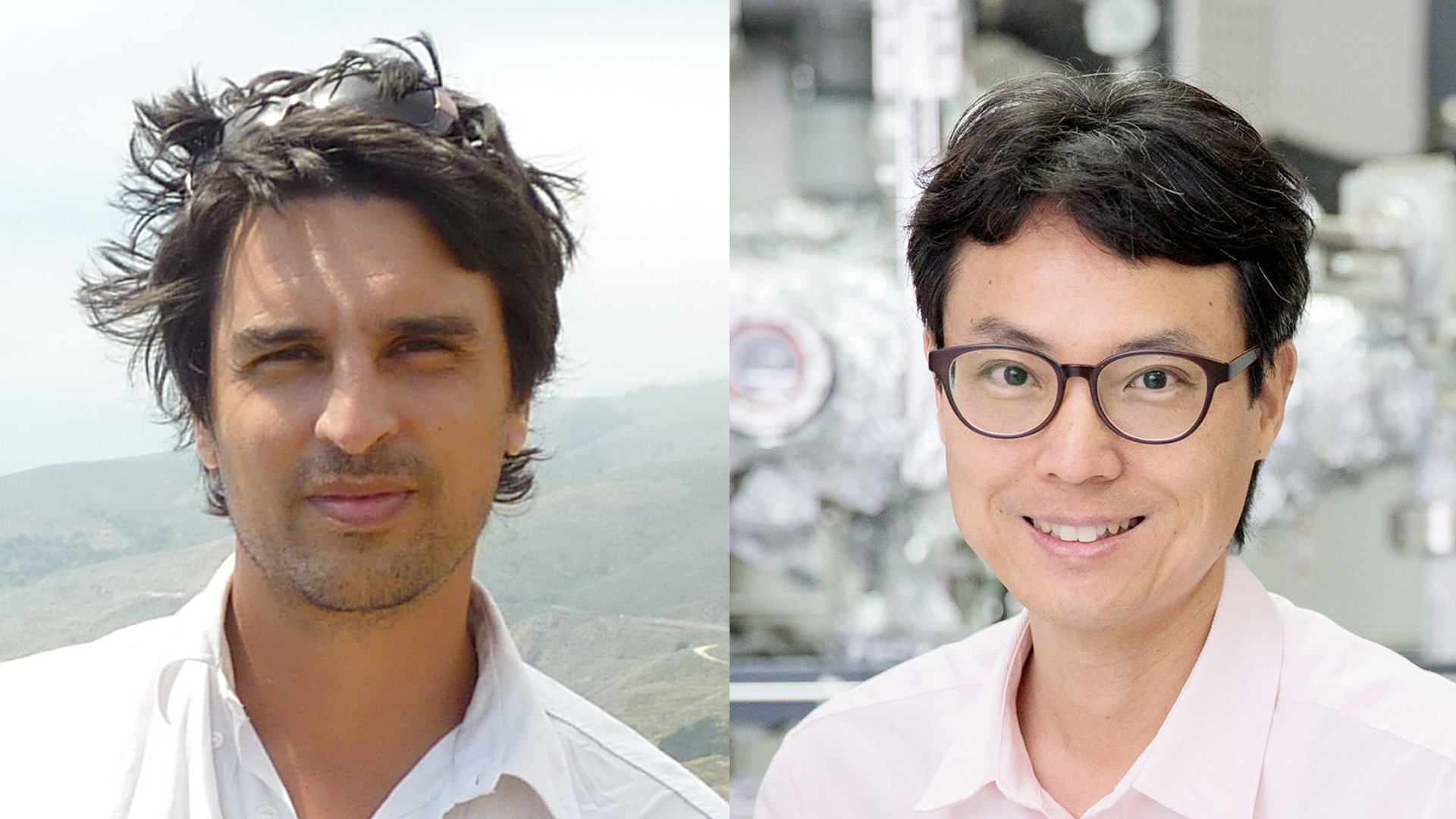
Vincent Repain and Hyunsoo Yang
Can you tell us more about your research area, the project and your collaboration ?
Vincent Repain: I’m in the physics department at UPCité, specifically, Quantum Materials and Phenomena. My research concentrates on magnetism and materials with an emphasis on surfaces and interfaces.
Hyunsoo Yang: I am a professor in electricial and computer engineering. So basically, I am an engineer. My main area of research focuses on making electronic devices for utilisation with some nobel materials. Vincent is working on new materials. It is a perfect combination on how we work together; he works on interfaces and I can use those materials to make interesting novel devices.
Vincent Repain: In fact, we met through Prof. Salim Mourad Cherif from Galileo Institute of Technology, Université Sorbonne-Paris Nord a few years ago, who actually put us in contact. I also knew Mourad for a long time and was able to go to Singapore.
Why did you respond to the Paris-NUS call for joint research projects?
Vincent Repain: Since we already initiated interactions with Mourad, when I went to Singapore about a year ago, we started to discuss new materials. So, when the call arrived we already had ideas and we were ready to move ahead with what we could do further together. The work with Mourad and Hyunsoo was ongoing but at the same time was also new.
Hyunsoo Yang: It is an completely new approach, Université Sorbonne Paris-Nord has a special measurement tool based on optics, it can characterise some magnetic properties. Vincent actually jumped in with some new materials. So now there is even more chance that I can make those with the devices and then if I need some device characterisation I can also collaborate with Paris-Nord.
How does the Paris-NUS grant contribute to advancing the research in your field?
Hyunsoo Yang: What I am doing is to make non volatile computer memory. For example, when you turn off your computer, you lose memory, that’s why we have to move information into a hard disk, which takes time. Our dream to advance research is to make a non volatile memory, when you turn your power on and off it will be instantaneous because the memory will restore the information. Non volatile computer memory has been there for a long time, but inside your computer there are limitations or it is too slow. So that is what we are aiming for; a new direction. We want low power consumption memory, it should be electron based control and use Vincent’s new materials.
Vincent Repain: The two key words are magnetism and memory for the application. Low consumption is also key as we need to have sustainable electronics in the future considering the challenges of global warming. We have reached a threshold with existing materials and the efficiency of the devices. If we want to improve, we need to use new concepts. Our idea is to force materials such as cobalt, iron or nickel to have different symetry than their natural ones in crystals. Potentially the symetry can have an impact on the magnetism. Once we characterise the symetry and structures in Paris, Hyunsoo can look at the electronic properties and make an electronic device out of this.
What are the benefits of conducting research in Singapore and in Paris ?
Hyunsoo Yang: What we are doing has never been done before. I think we are moving in a new direction. We believe it can make a strong impact to our society. Symetry is a very interesting topic not only in magnetism but in mathematics and general physics. France is traditionnally very strong in magnetism. We can do very interesting device research in terms of application in Singapore.
Vincent Repain: Singapore is an important partner in terms of computer and memory engineering. They have all the semiconductor factories and industries there that we do not have in France. It is one of the best places in the world where I can explore the properties of new devices that can be useful for memory because of the infrastructures there as well as the quality of NUS in this field. It is important to visit the facilities beforehand when preparing for the call, and it makes it a lot easier.
If you had to describe in a three words your experience and the project, what would they be ?
Vincent Repain: Professional, efficient, friendly
Hyunsoo Yang: For future innovation
Vincent Repain is a full professor at Univesité Paris Cité in the physics department. His research focuses on Quantum Materials and Phenomena. Prof. Repain is a recognised expert in the field of surface science and nanomagnetism. His team’s research activity is dedicated to self-organisation of crystalline surfaces, nucleation and growth, electronic and magnetic properties of nanostructured systems and molecular layers. Prof. Repain masters different surface science techniques such as scanning tunnelling microscopy, x-ray magnetic circular dichroism and surface x-ray diffraction.
Hyunsoo Yang is a Professor in the Department of Electrical and Computer Engineering at the National University of Singapore (NUS), working on various magnetic materials and devices for spintronics applications. He worked at C&S technology, LG Electronics in San Jose, and Intelligent Fiber Optic Systems in California. He received his Doctorate from Stanford University. From 2004-2007, he was at IBM-Stanford Spintronic Science and Applications Center. He has authored more than 230 journal articles, given 200 invited presentations, and holds 18 patents. He was a recipient of the Outstanding Dissertation Award for 2006 from the American Physical Society (GMAG), IEEE Magnetics Society Distinguished Lecturers for 2019, and the Minister of Science ICT award for 2020.
Read more
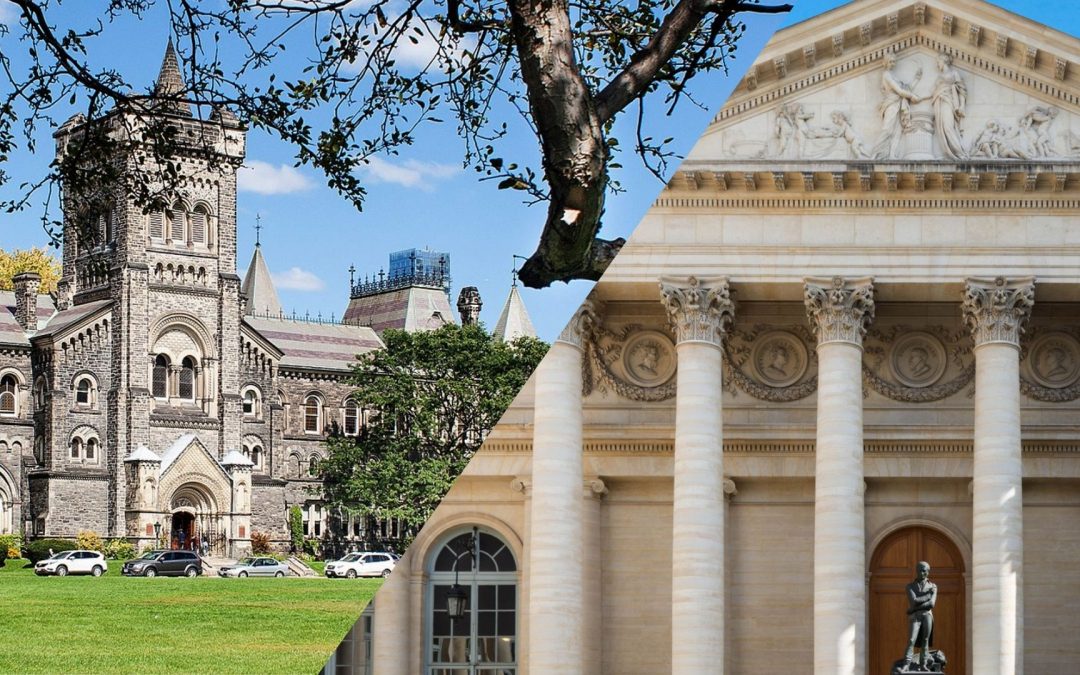
Results of the 2025 Call for Projects with the University of Toronto
The 2025 call for projects between Université Paris Cité and the University of Toronto met with great enthusiasm within the scientific communities of both institutions. Eighteen proposals were submitted by pairs of researchers; five projects were selected at the end...
read more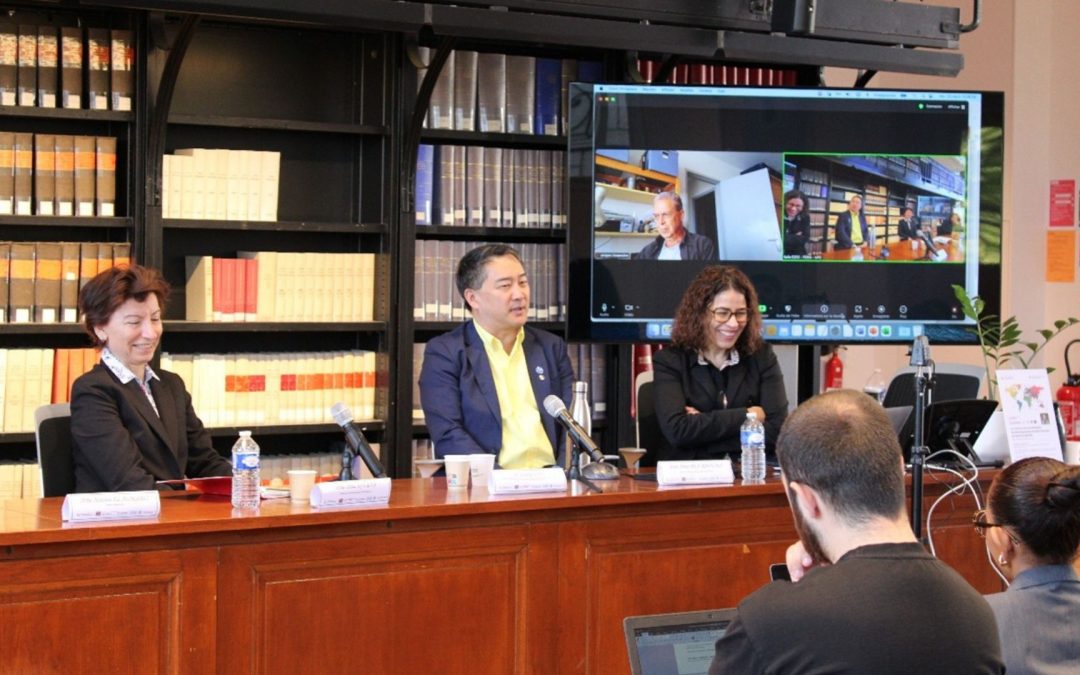
Discussing Sustainability Standardization with Charles Cho, Professor of Sustainability Accounting at York University (Canada)
As part of the international program "Enseignant-Chercheur Invité", Charles H. Cho, PhD, CPA, Professor of Sustainability Accounting and holder of the Erivan K. Haub Chair in Business & Sustainability at the Schulich School of Business, York University, was...
read more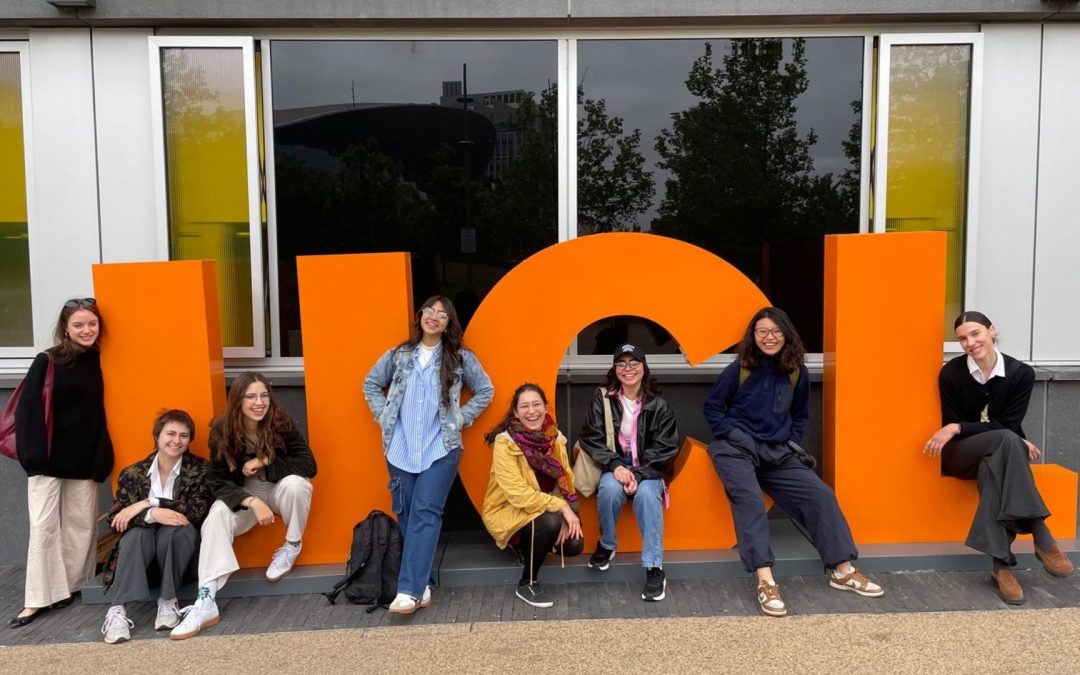
EURIP Master’s Students at University College London Hackathon
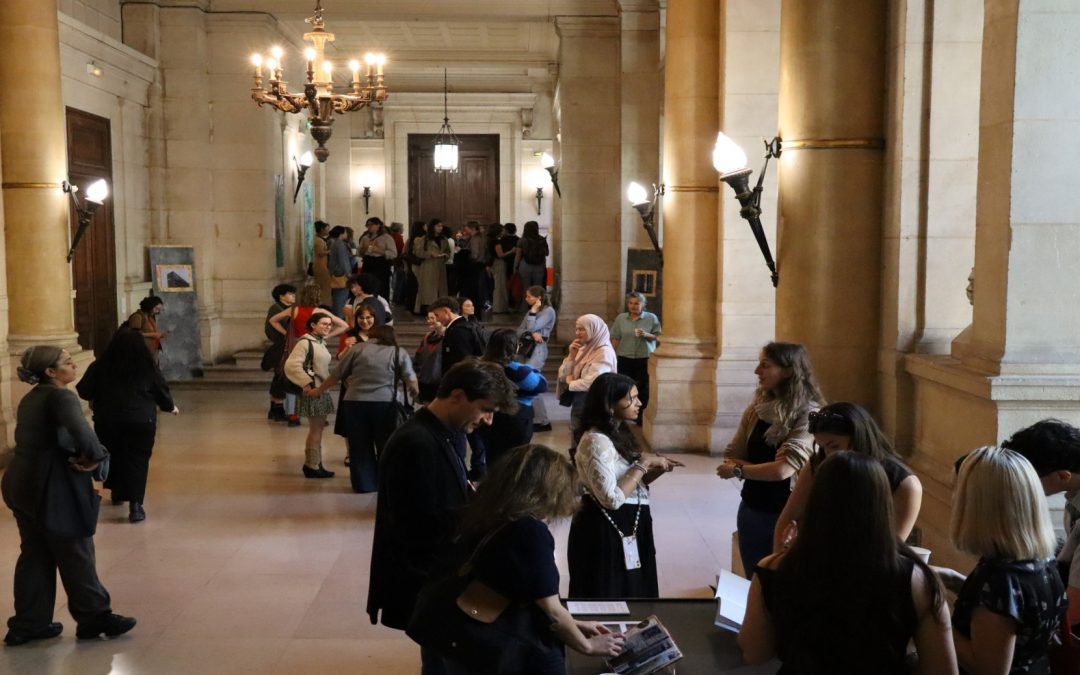
From Paris to Singapore: a visual retrospective of the exhibition
On the 16th of May, Université Paris Cité hosted the exhibition evening for the programme Singapore: a Nexus of Nature, Culture, and the Arts. Centred around creativity, intercultural exchange, and environmental reflection, the event showcased the work of around...
read more